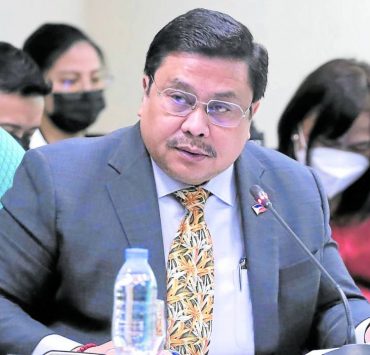Delayed priority measure on PH seafarers’ charter signed into law

Seven months after he had returned to Congress this priority measure for its further refinement, President Marcos on Monday finally signed into law Republic Act No. 12021 or the Magna Carta of Filipino Seafarers Act.
The President last year had certified this measure as urgent, after more than 50,000 Filipino seafarers working in European vessels almost lost their jobs because of their repeated failure to pass the standards set by European maritime authorities.
Stakeholders in the maritime industry regard the measure now enacted into law as a crucial complement to helping improve the training of seafarers as well as their working conditions.
In a speech during the signing of the enrolled version of Senate Bill No. 2221 and House Bill No. 7325, Mr. Marcos said RA 12021 “will seamlessly align with the Standards for Training, Certification and Watchkeeping or STCW, [set by the European Maritime Safety Agency or Emsa] as well as the accepted global maritime labor laws.”
He said the new law would help strengthen maritime institutions, ensure adequate training, just wages and fair benefits for seafarers, and serve as the legal framework against their exploitation and discrimination.
Complaints
For almost two decades since 2006, the Philippines has repeatedly failed to comply with the 1978 International Convention on STCW, which serves as the framework of Emsa in ensuring professionalism in Europe’s maritime sector.
In 2020, Emsa found 23 “grievances” against Filipino seafarers and 13 “shortcomings” in that workforce, including inconsistencies in teaching and assessment and lack of training equipment. The Department of Migrant Workers later raised these findings during a hearing at the House of Representatives in October 2022.
Emsa also flagged Philippine maritime schools that did not comply with the STCW Convention and said it may not accredit Filipino seafarers for work onboard European vessels.
The agency said further that this was the final year for the Philippines to address deficiencies in its STCW system.
A month later, Mr. Marcos directed several government agencies to come up with a plan that would address the Philippines’ shortcomings cited in Emsa’s report.
By December, the President assured transport officials of the European Union (EU) that the government was working to resolve the STCW issues.
He also ordered the creation of an advisory board to address not only possible job losses affecting Filipinos in EU-flagged vessels but also the concerns of Filipino seafarers worldwide.
Shutdown, noncompliance
By March of 2023, the EU decided to recognize the certificates of Filipino seafarers. By then, the Directorate General for Mobility and Transport of the European Commission had also written the Maritime Industry Authority (Marina), assuring that agency that the Philippines had shown “concrete progress and improvement” in complying with STCW requirements.
A few days after the EU’s decision, it was reported that 15 maritime programs in the country had been shut down due to noncompliance with maritime standards.
Meanwhile, the Commission on Higher Education (CHEd) and Marina, together with maritime higher education institutions, crafted an enhanced curriculum to address deficiencies in the country’s maritime education.
‘Largest supplier’
CHEd Chair Prospero de Vera III also cited the need to monitor all maritime schools not just in implementing the curriculum but in making sure these have the necessary equipment and facilities and competent teachers.
The Philippines’ seafaring profession generated over $6.7 billion in remittances in 2022 alone.
Last year, the number of deployed Filipino seafarers reached over 570,000 worldwide.
Mr. Marcos expressed optimism that the Magna Carta would give Filipino seafarers “not only fair wages but also recognition for their hard work and dedication.”
For his part, Speaker Martin Romualdez said that, “with this measure, we hope we can remain to be the largest supplier of seafarers in the world.”
House Deputy Majority Leader Jude Acidre, who heads the committee on overseas workers affairs, said the new law addresses the concerns of foreign employers on the education, training and competency of Filipino seafarers.
“We hope our sailors will not face the same threats of being blacklisted made in the past by some shipping companies in Europe due to these concerns,” said Acidre, who represents Tingog party list.
He added: “Our law conforms with international legislation and standards, which means that foreign companies will mostly likely continue employing our sailors.” —REPORTS FROM INQUIRER RESEARCH, JEANNETTE ANDRADE AND MELVIN GASCON INQ

















